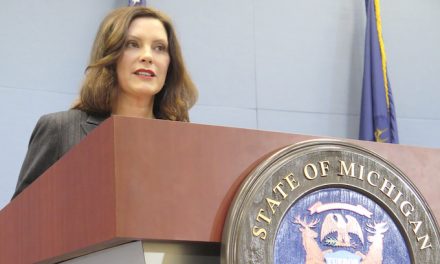Should the city of Boston give Black people reparations for slavery?
That’s the question the city council will probe in an upcoming hearing, as called for on Wednesday by City Councilors Julia Mejia and Kenzie Bok.
The idea of reparations — stretching back to the famous proposal of 40 acres and a mule for newly freed slaves right after the Civil War — is the idea that the government owes Black people something for enslaving their ancestors.
The order submitted by Mejia and Bok calls for “a hearing on reparations and their impact on the civil rights of Black Bostonians, in order to both form a common, shared history regarding Boston’s involvement in the enslavement of Black people as well as to explore the possibility of Boston issuing reparations.”
Mejia, speaking to the council on Wednesday, said this would be a way of making up for America’s “original sin” of slavery. She left the concept of what the reparations could be open, from money to simply some dialogue about slavery.
“It could be so much more than just a check in the mail — reparations could be compensation, but it could also take place in the form of providing care and services to descendants of slaves, as well as issuing a public apology,” she said.
She noted the oft-cited Federal Reserve study from six years ago, which said white households have a median net worth of $247,500, as compared to $8 for Black households.
Bok, who’s worked as a historian, said the effects of slavery continue to ripple through the generations.
“The opportunity to kind of look at that history, and then say, what would be meaningful, what would be a motion toward repair, is really a long overdue conversation in our society,” Bok said.
The hearing will take place at a to-be-determined date.
Critics of the idea of monetary reparations have cited the massive cost and logistical effort that would be required to get money to people, and to process applications. Others argue such a thing would no longer be needed so far out from the slavery era.
The idea of reparations is old, but it’s regained traction over the past several years in particular, coming along with the increase of focus on racial issues. There’s currently a bill in the U.S. House of Representatives that would create a commission to look into reparations.
___
(c)2021 the Boston Herald
Visit the Boston Herald at www.bostonherald.com
Distributed by Tribune Content Agency, LLC.
—-
This content is published through a licensing agreement with Acquire Media using its NewsEdge technology.



















I firmly believe in reparation. There are a few problems related to it this late however. First determining which blacks were actually related to slaves, and then determining which country to repatriate them to. Other than that, go for it.
“ARising tide, Lifts All Boats , ” I have a question, Did the Black Race Benefit from the White Man’s economy?, There’s a quote, that say, ” A rising tide, Lifts All Boats ” A Famous Boxer once said, ” Thank God, My Ansisters got on that Boat” after having a fight in Africa and seeing the poverty that the Black Race was existing under……
” All animals are equal, but some Animals are More ” EQUAL, ” than others . ” Have you noticed, that not all of the ( WHITE RACE, ” Aren’t Living As Well As other White People……
I am all for repatriation. The problem is that it would be hard to figure out which American blacks were actually descended from slaves. Then of course, the real problem. Which country to repatriate them to. Then comes the biggest problem. Some of them may not want to return to the homeland.
Make it voluntary. Those that want, can pay their indulgences.
“To compel a man to subsidize with his taxes the propagation of ideas which he disbelieves and abhors is sinful and tyrannical.”
Thomas Jefferson
YOU should know by now, if they make it voluntary folks can just say “HELL NO I won’t pay..”
And – what about those who are descended from both????
David Horowitz wrote a article once, titled ” The Reasons Why ” Reparations for Blacks is a Bad Idea And Racist Too.. ” Then too there were also Slaves who were. White People as well, then America is composed of all Races, which Never owned Slaves, Some of the Black Race Today are new immigrants. David Horowitz was a “Red Dipar Baby ,” in America long Ago. ..
Correction to above post, 10 Reasons Why Reparations ….. “
David Horowitz wrote not too long ago his thoughts about Reparations for Slavery in this country. The major problem besides being paid in ransom, for Slavery that many of the White Race weren’t wealthy enough to own Slaves. However, many of the White Race gave their lives to free the Metro from Slavery. And the Slavery was back over 150 Years ago when Abraham was president. Abraham Lincoln issued a piece of Legislation that freed all Slaves that were held in Slavery.David Horowitz wrote some time ago, ” Ten Reasons Reparations were a dad idea for Blacks, and Racist too…. “
The document, Titled, ” Emancipation proclamationJanurary1St.1863 ” by Abraham Lincoln….
Reparations—hell yeah! Hold the people responsible for importing African-Africans over to this nation and putting them into slavery. Namely the DEMOCRAT party. After deductions are made for all the billions spent on social programs to sustain a dependent class of left wing black voters, pay the african-americans a fair compensation funded entirely by the DEMOCRAT party. In addition, compensate all heirs of those who fought against slavery and who died during the Civil War that southern Democrats started namely REPUBLICANS. I would love to see the Democrat party funding the cost, and not by stealing from American tax payers under the deceitful labels of “covid relief” or “infrastructure”.